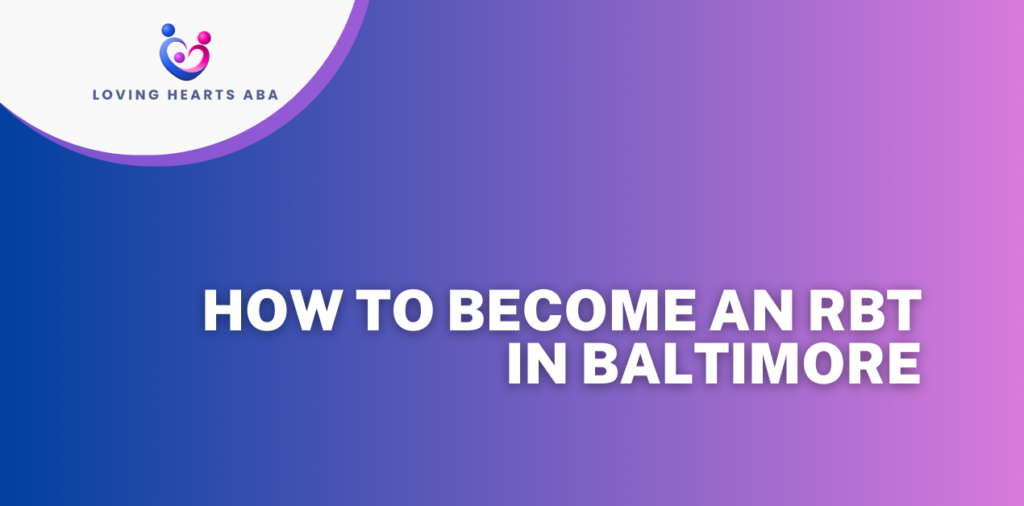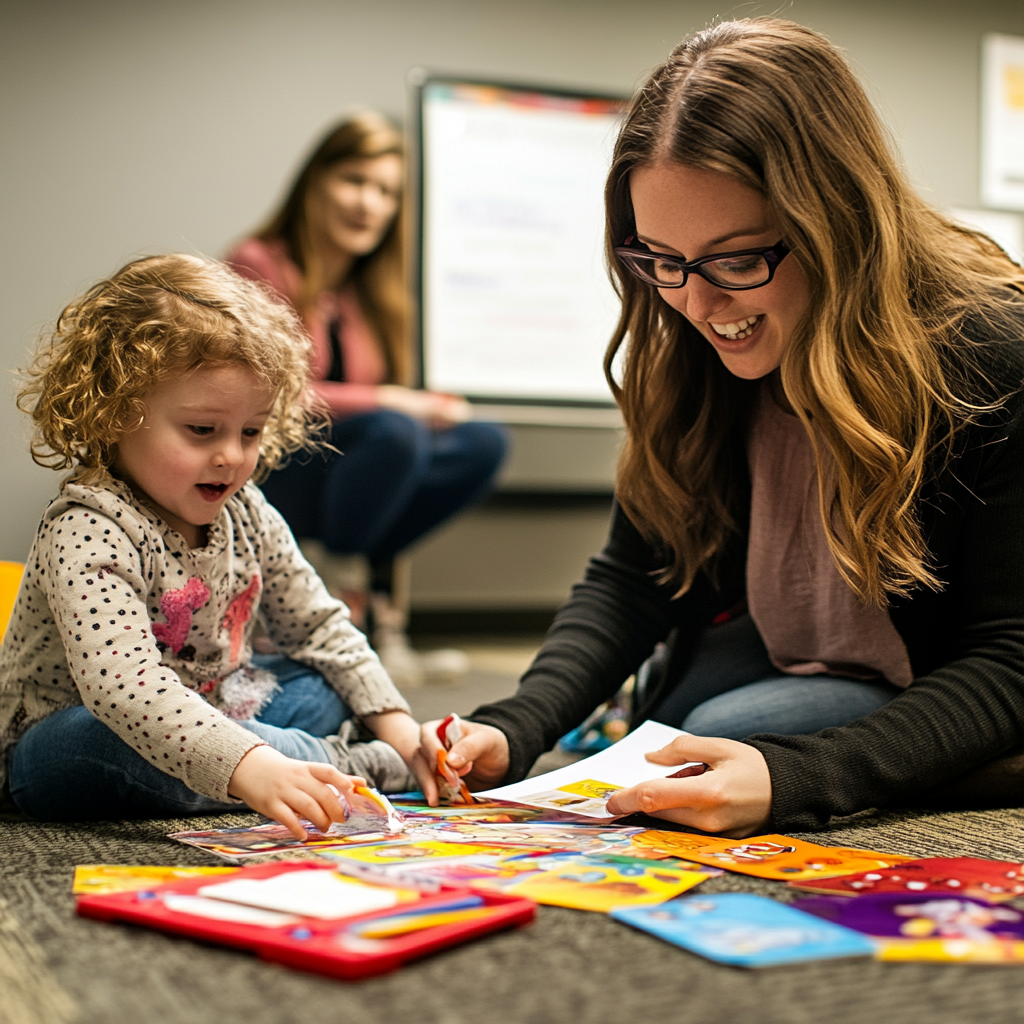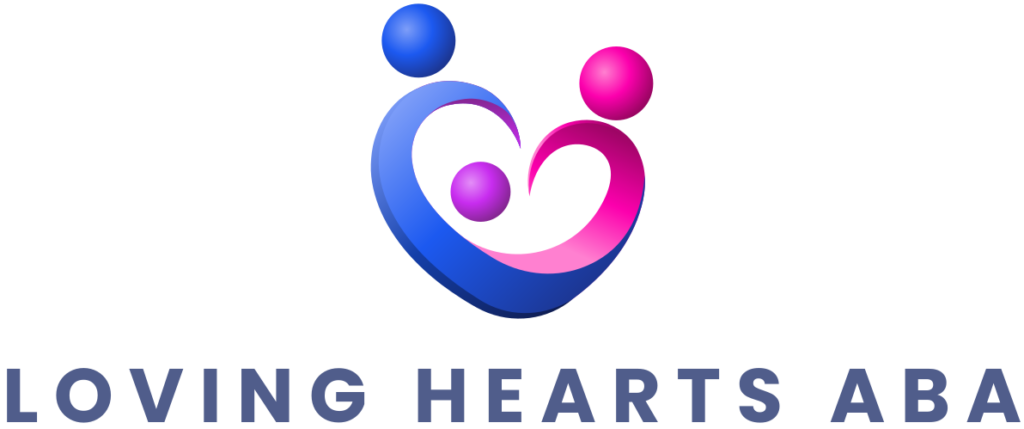
Becoming a Registered Behavior Technician (RBT) is an excellent opportunity for those who want to work in the field of ABA and make a positive change in the lives of individuals with Autism Spectrum Disorder (ASD). In Baltimore, MD, RBTs work under the supervision of a Board Certified Behavior Analyst (BCBA) to implement behavior plans, support social skills development, and assist with behavior reduction strategies. This guide will outline the certification process and help you navigate the career opportunities available in Baltimore City, Owings Mills, Columbia, MD, and surrounding areas.
Full-Time Career as an RBT
Working as an RBT full-time can be a rewarding career with a supportive environment and job stability. Full-time RBTs typically receive healthcare benefits, including vision insurance, dental insurance, and retirement plans. They also have access to professional development assistance to advance their careers, whether through continued ABA therapist training or obtaining a master’s degree in a related field.
Step 1: Meet the Basic Requirements
Age and Education Requirements
To begin the certification process, candidates must meet the following requirements:
- Be at least 18 years old
- Hold a high school diploma or equivalent
- Have a passion for working with individuals who require behavior-analytic services
Background Check
Before starting RBT training programs, candidates must pass a criminal background check to ensure they meet the ethical and legal standards of working with vulnerable populations. Many service providers in Maryland ABA require this step before hiring new employees.
Step 2: Complete the 40-Hour Training Program
Approved Training Providers in Baltimore

The RBT Task List outlines the core competencies covered in the 40-hour training, which can be completed through the following approved providers:
- Autism Partnership Foundation (Online, Free Training)
- Verbal Beginnings
- Vision Behavior
- Helping Hands Family
- Learning Tree ABA
Online vs. In-Person Training
Some training programs offer flexible scheduling, allowing candidates to choose between online courses or hands-on experience through in-person workshops. While online training provides convenience, in-person training offers direct support and team meetings with professionals in the field of ABA.
Step 3: Pass the Competency Assessment
What the Assessment Involves
A BCBA conducts the RBT Competency Assessment and evaluates a candidate’s ability to:
- Collect data effectively
- Implement positive reinforcement strategies
- Demonstrate problem-solving skills
- Follow behavior plans
Tips for Success
- Gain hands-on experience by volunteering at ABA services
- Participate in BCBA trainings and team meetings
- Seek mentorship from Behavior Specialists
Step 4: Apply for the RBT Exam
How to Apply
Candidates must create an account on the Behavior Analyst Certification Board (BACB) website and apply with:
- Proof of successful completion of the 40-hour training
- Competency Assessment verification
- Application fee payment
Required Documentation
Candidates must submit the following:
- High school diploma
- Completed Competency Assessment form
- Background check confirmation
- Employer verification (if applicable)
Step 5: Schedule and Take the RBT Exam
Exam Locations in Baltimore
The RBT exam is administered at Pearson VUE testing centers in:
- Baltimore, MD
- Glen Burnie, MD
- Silver Spring, MD
- Middle River, MD
- Howard County
What to Expect on Exam Day

The certification exam consists of 85 multiple-choice questions, focusing on:
- Behavior reduction strategies
- Data collection
- Parent training techniques
- ABA therapy implementation
Step 6: Maintain Your RBT Certification
Ongoing Supervision Requirements
To Maintain RBT Certification, individuals must receive ongoing supervision from a BCBA. This includes:
- Team meetings
- Professional development assistance
- Direct observation of ABA therapy
Renewal Process
RBTs must renew their certification annually by:
- Completing continuing education requirements
- Submitting a renewal application to BACB
- Completing an updated Competency Assessment
Aba Therapist: Career Growth and Development
Many RBTs work as ABA Therapists before advancing to BCBA roles. With a master’s degree in a related field, an RBT can transition into Behavioral Therapist, Clinical Supervisor, or Program Manager roles.
Rbt Training Jobs and Similar Job Titles
- Behavioral Therapist
- Behavior Specialist
- Mental Health Technician
- Direct Support Professional
- Special Education Assistant
Job Overview for RBTs in Baltimore
RBTs can expect competitive pay, healthcare benefits, and flexible scheduling in roles across Baltimore City, Howard County, Silver Spring, and surrounding areas.
Career Opportunities for RBTs in Baltimore
Job Market Overview
With the demand for ABA services rising, RBT jobs are available in a variety of settings, including:
- ABA therapy centers
- Pediatric Developmental Services
- Public and private schools
- Mental Health clinics
- Autism treatment programs
Potential Employers

Some of the top ABA service providers hiring in Baltimore include:
- Move Up ABA
- Learning Tree ABA
- Helping Hands Family
- Verbal Beginnings
Job Benefits and Compensation
RBTs in Baltimore enjoy competitive pay and benefits such as:
- Health insurance (including vision insurance and dental insurance)
- Flexible scheduling for work-life balance
- Referral programs for new hires
- Employee assistance program
Conclusion
Summary of Steps
- Meet eligibility requirements
- Complete the 40-hour training
- Pass the Competency Assessment
- Apply for the RBT exam
- Schedule and pass the exam
- Maintain your certification
Additional Resources
- Autism Spectrum Disorder support groups in Baltimore City
- Continuing education opportunities for career advancement
- Scholarships and financial aid for RBT training programs
Frequently Asked Questions (FAQs)
How long does it take to become an RBT?
On average, it takes 1-3 months to complete all requirements.
Do I need a degree to become an RBT?
No, only a high school diploma is required.
What is the job outlook for RBTs in Maryland?
With the rising demand for autism treatment, RBTs work in schools, clinics, and in-home therapy programs across Baltimore City, Howard County, and surrounding areas.
What are the next steps after becoming an RBT?
Many RBTs pursue further education and career advancement by obtaining a Bachelor’s degree and working toward BCBA certification.
By following these steps, aspiring professionals can successfully enter the field of ABA, secure RBT jobs, and make a lasting positive change in the lives of individuals with developmental disabilities.
